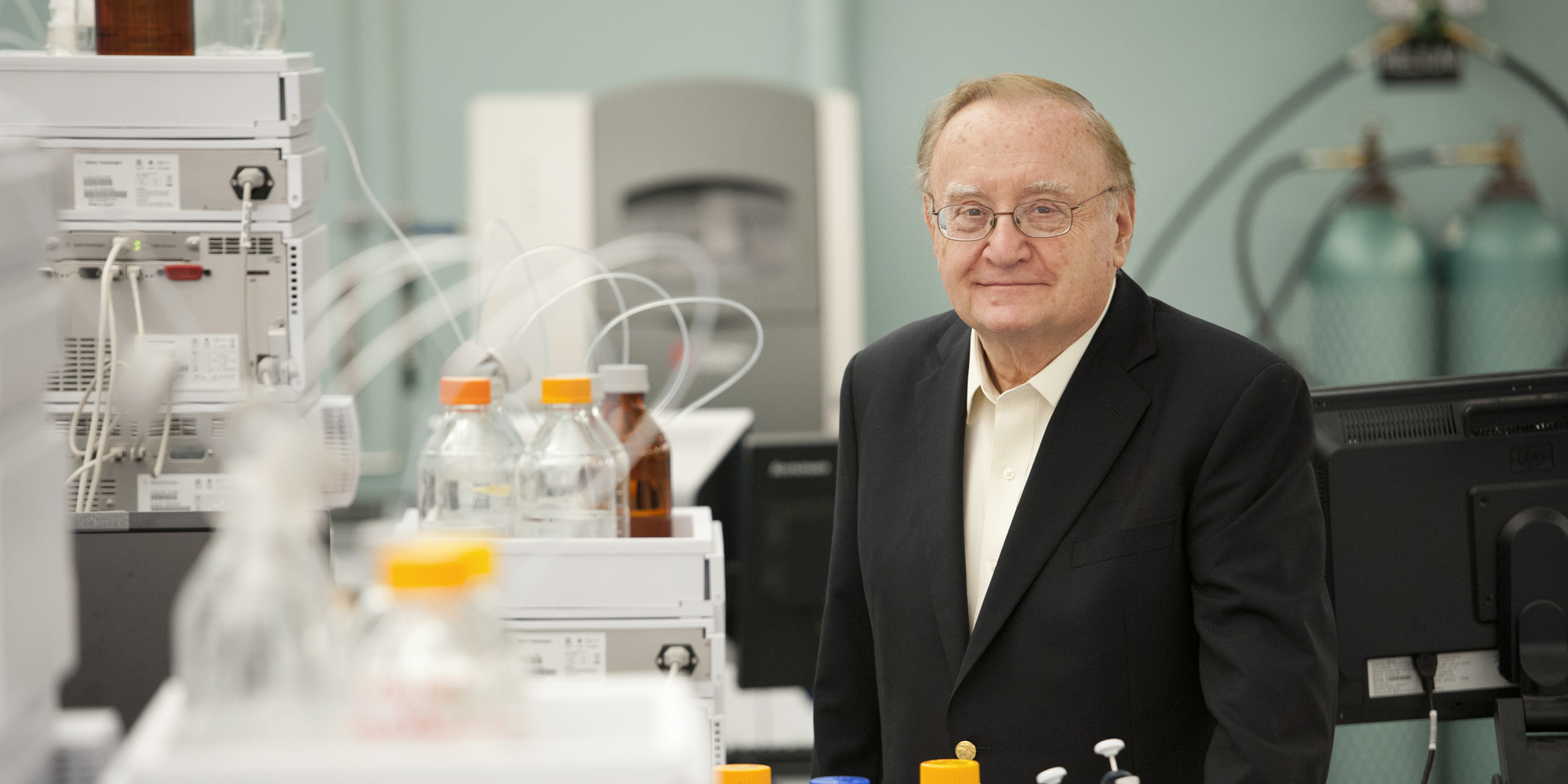by Jeff Cutler
The prevailing view of research science is that professors and laboratory staff work on obscure challenges for which a lifetime might not be enough time to solve. Further, there are some who also feel academic scientists focus too much on projects that might only have limited application in the ‘real’ world. If you’re in either camp, you haven’t met Dr. Barry Karger, a Distinguished Professor and James L. Waters Chair in Analytical Chemistry at Northeastern’s College of Science, and the Director of the Barnett Institute.
For Karger, science and research needs to be directed toward solutions that solve problems.“As scientists at the Barnett Institute, we have a strong focus on trying to solve important problems,” said Karger.
Since his arrival at Northeastern in 1963, Karger has honed this focus to attack real, significant problems. In fact, his career as a bioanalytical chemist has allowed him the ability to have impact in biotechnology, human genome science and other areas. In recognition of his success, he has received many national and international awards.
“When I began in the 1960s, the purer you were in research, the more prestigious you were,” said Karger. “If you worked on applications – even to solve problems – that was looked at as less prestigious.”
That changed in the decades following his start as a professor. While the interaction between academia and industry was quite limited at first, companies found that collaboration with skilled scientists could help them develop new technologies, products, medicines, and save lives.
It was a distinction between basic research versus application of a solution. Prestige these days is still available in the pure research realm, but there is a lot more recognition and reward for those who solve problems and create startups and companies to commercialize scientific research.
“There needs to be a balance,” said Karger. “But one sees how things have changed. The relationship between scientists in universities and industry is only growing. I believe it’s far different now from when I began at Northeastern, and the ties will only continue to strengthen between academia and industry.”
Examples of this new era include the relationships many pharmaceutical and biotechnology companies have with university researchers. Industry is changing, and the field of chemistry is more important than ever. Karger says the fields within each specialty are diffuse and that means that scientific knowledge has to span across different fields of study.
What he’s indicating is that collaborating with specialists in different scientific and business fields is a requirement instead of a luxury. It’s something he’s tried to foster his entire career because he saw the value of different approaches, training and perspectives.
“I have collaborations with engineers, medical professionals (Dana Farber, MGH), the biotech industry, instrument companies and more,” said Karger. “One can’t be pigeonholed. You need to be broad. It’s a given that you need to be an expert in your field, but you also need to understand the big picture.”
The key ingredient he points to is understanding problems from everyone’s point of view. Also, maintaining a focus on outcome and impact rather than simply “impact factor” is critically important.
As a parallel, Karger has had great impact on the students and partners he’s worked with over the years. He says the Institute has seen more than 400 PhD, post- doctoral, and staff scientists emerge through its doors, and one of his happiest moments is seeing these alumni succeed.
“One of the things that is unique about being a professor is mentoring young people,” said Karger. “At the Institute, we have a roster of alumni who have gone on to major success both academically and in industry, many with biotechnology companies.”
But it’s not without its challenges. Karger likens the process to any learning – mentoring and watching people grow is key.
“When we get new students, they are like wild horses. To see them change over their career at Northeastern, and then after graduating, see them in the field,” said Karger. “This is one of the great joys of being a professor.”
He credits the development of Northeastern as a world-class institution for making this possible. With aggressive hiring in the 2000s, Northeastern positioned itself in a superior state for research and teaching. And today, he says, it’s a wonderful collection of excellent faculty and facilities. Joint appointments between colleges at Northeastern only strengthens the collaborative spirit and helps provide professors with insight into other specialties.
“It’s an interdisciplinary and collaborative mentality that succeeds,” said Karger.
Speaking of research with impact, Karger is currently working closely with biotechnology companies to develop tools to help analyze the complex protein drug products that are made from living organisms. His work right now also includes the ability to study very limited amounts of clinical samples and still find results in the understanding of diseases such as cancer. Diagnostic markers and drug targets will be the outcome of his work.
This work underscores his belief that scientific research is having an impact. The community at Northeastern – and at the companies with which he’s working – are exciting to be involved with, and his team is hardly ever bored. Essentially, more than half a century after he started, Karger believes his field continues to be valuable, and students can find a rich future in it.
“In many jobs, people are in a cubby hole, and they look forward to retire because they are bored,” said Karger. “I’m not going to say there aren’t aggravations being a profesor. But at the same time there’s a lot of satisfaction, and it’s really interesting. With the research that’s going on now at Northeastern, it’s just getting more exciting.”
The interaction and the results speak for themselves. Dr. Barry Karger is still paving the way for scientific exploration and collaboration on campus and within the industrial community.

